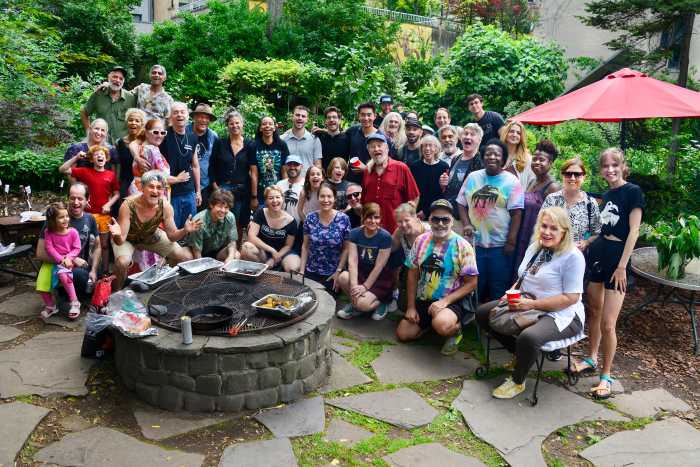By Steven Snyder
Volume 76, Number 19 | September 27 – October 3, 2006
Film
“Home” A documentary directed by Jeffrey Togman
Showing through Sept. 30 at The Pioneer Theater
55 East 3rd Street
(212-591-0434; www.twoboots.com/pioneer)
A disheartening film about poverty
If Hurricane Katrina became a catalyst for a widespread — albeit short-lived — discussion of race and class in 21st-century America, it also proved that America’s long legacy of brushing poverty under the rug is still as popular as ever. To even begin to address the problem would require a far-reaching campaign of housing, education, employment, and integration. Given this complexity, poverty can’t match such sound-bite-friendly issues like abortion or national security in terms of publicity.
So we go election to election, listening to candidates who try to divide voters with morality and fear, while such topics as a shrinking middle class, the declining living wage and a growing concentration of wealth disappear into the fog of one-dimensional campaigns.
Into this no man’s land of political discourse comes “Home,” a documentary that tries to cut through the mythos of the American dream and present us with one story of the sobering American reality. It’s a portrait that evokes the numerous, varied problems that combine to form a situation so hopeless, and so scary that families are drowning —both literally and figuratively — in front of our eyes.
Director Jeffrey Togman starts with a most empathetic subject: Sheree Farmer.
Farmer is raising her six children alone on a gang-controlled street in Newark when a community activist comes knocking on Farmer’s door. Her name is Mary Rigby Abernathy, and her mission is as simple as it is bold. By the year’s end, Abernathy will help Farmer balance her finances, sign the lease on a subsidized home, and move in to a community where Farmer will be able to raise her children in peace.
It’s a trifecta Farmer could only have dreamed of winning. But within a matter of weeks, this seemingly simple solution to Farmer’s poverty unravels. We see how the struggles of money affect Farmer’s family when she gets into a fight with her teenage daughter, leading to an altercation that results in Farmer losing custody of her.
We see how her ex-husband — an abusive, drug-abusing ex-con — cripples Farmer’s finances after he is arrested for skipping jail and failing to pay bail. His bond debt, a substantial amount, becomes a mountain Farmer must climb before achieving the clean credit history Abernathy demands.
We’re also immersed in the struggles of the single mother, running from job to school to home and back again. She’s exhausted and scared, and even more troubled about the prospect of having a whole house to care for — so terrified, in fact, she sends a friend over to view Abernathy’s housing project and to check out if this deal is for real. Her friend, astonished at how nice the home is, remains mystified as to why Farmer doesn’t jump at the opportunity.
Which leads to the film’s most heart-breaking realization. More than financial, familial or legal hardships, Farmer seems most disoriented by Abernathy’s generosity. How could someone be this nice, she wonders, as she does nearly everything possible to talk herself out of the deal.
The real story of “Home,” then, is that Farmer’s life has been so difficult and draining that she can’t imagine it getting any better (she says as much in her interactions with Togman). And this is where the film becomes not just dismaying, but haunting, forcing us to confront a tidal wave of pessimism and hopelessness that truly has no easy solution.
So many politicians, activists and voters talk about poverty optimistically, as something that can be fixed with a laundry list of initiatives. “Home” stands as a wake-up call for anyone concerned about the situation, a chance to sit alongside one of those people they are worried about, and to see first-hand how imposing this uphill battle will be, once we get around to fighting it.






























